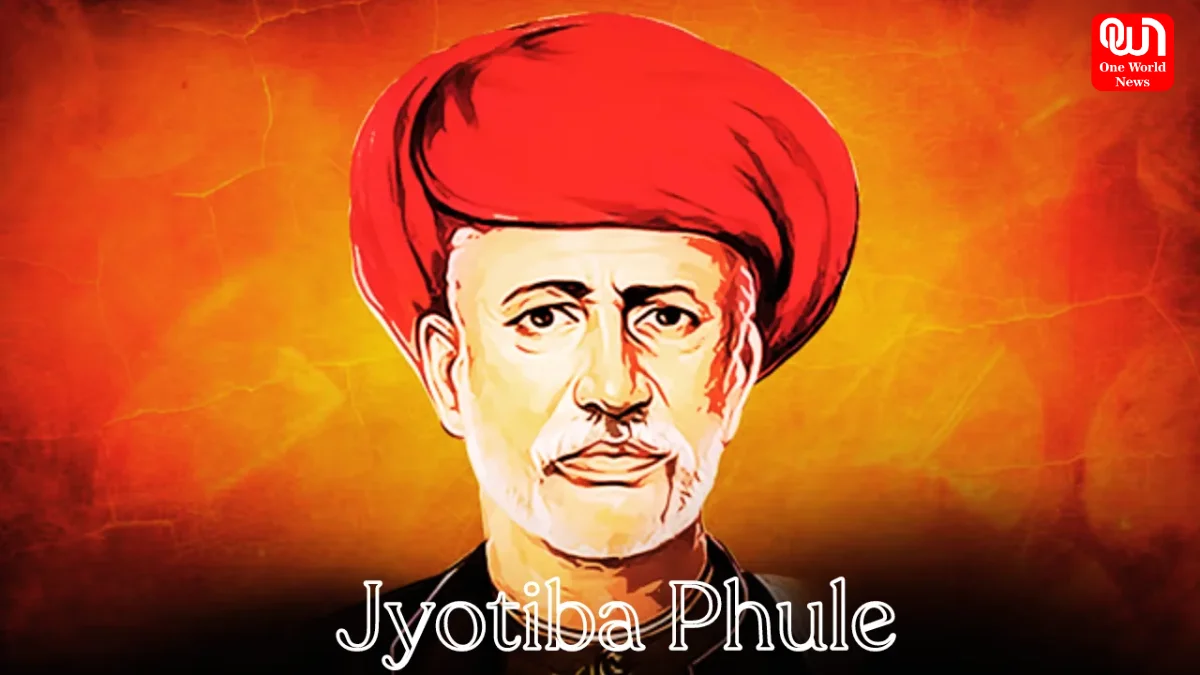Mahatma Jyotiba Phule Death Anniversary: Remembering the Social Reformer Who Fought for Equality and Education
On Mahatma Jyotiba Phule Death Anniversary, we honor the visionary reformer who championed education, equality, and social justice in India.
Mahatma Jyotiba Phule Death Anniversary 2025: Remembering the Visionary Reformer Who Fought Against Caste Discrimination and Empowered Education in India
Mahatma Jyotiba Phule Death Anniversary is observed every year to pay tribute to one of India’s greatest social reformers, thinkers, and educators. His relentless efforts toward eradicating caste discrimination, promoting women’s education, and fighting for social equality continue to inspire generations. On this day, people across India remember his contributions and reflect upon his vision of an inclusive and just society.
Early Life and Inspiration
Humble Beginnings
Jyotirao Govindrao Phule, popularly known as Mahatma Jyotiba Phule, was born on April 11, 1827, in Satara, Maharashtra. Coming from a family of vegetable vendors, Phule faced caste-based discrimination early in life. These experiences shaped his resolve to challenge social inequalities and dedicate his life to reform.
Influences That Shaped His Vision
The turning point in Phule’s life came when he attended a Christian missionary school. Exposure to Western education and liberal ideas opened his mind to the injustices of the caste system. This realization became the foundation of his lifelong mission to uplift marginalized communities and fight for human rights.
Contributions to Education and Equality
Pioneer of Women’s Education
One of Jyotiba Phule’s greatest contributions was the promotion of women’s education. Along with his wife, Savitribai Phule, he established India’s first school for girls in Pune in 1848. This revolutionary step broke societal norms and empowered women to pursue education at a time when female literacy was nearly nonexistent.
Establishing Schools for the Marginalized
Phule didn’t stop at women’s education. He also founded schools for children from lower castes and underprivileged backgrounds, ensuring equal access to learning opportunities. His vision was clear—education was the key to social transformation and liberation from oppression.
Advocacy for Widow Remarriage and Social Reform
During a period when widows were marginalized, Phule stood up for their rights by supporting widow remarriage. He challenged regressive customs, fought against child marriage, and advocated for the upliftment of the so-called “untouchables.” On Mahatma Jyotiba Phule Death Anniversary, these contributions remind us of his courage to stand against deep-rooted traditions.
Read more: CIA’s Shadow Over Bangladesh: Army Chief Accused of Betraying Hasina by Ex-Home Minister
Founding of Satyashodhak Samaj
The Birth of a Social Movement
In 1873, Jyotiba Phule founded the “Satyashodhak Samaj” (Society of Truth Seekers) with the objective of promoting social equality and rejecting caste hierarchies. The organization worked tirelessly to eliminate social injustices and create awareness about the rights of the oppressed.
Goals of the Movement
The Satyashodhak Samaj emphasized equality, education, and empowerment. It encouraged rational thinking, inter-caste marriages, and self-respect among the lower castes. On Mahatma Jyotiba Phule Death Anniversary, people recall how this movement laid the foundation for many future social justice campaigns in India.
Relationship with Savitribai Phule
A Partnership in Reform
Savitribai Phule was not only his wife but also his strongest ally in the mission for equality. Together, they worked for the education and empowerment of women and lower-caste communities. Savitribai became India’s first female teacher, and their partnership remains a symbol of shared vision and strength.
Their Lasting Legacy
Their combined efforts changed the social landscape of 19th-century India. Today, both Jyotiba and Savitribai Phule are remembered as pioneers of education and champions of equality. On Mahatma Jyotiba Phule Death Anniversary, tributes are also offered to Savitribai for her unwavering dedication to his cause.
Later Life and Death
Continued Activism
Even in his later years, Phule continued to advocate for the rights of farmers, laborers, and oppressed communities. He wrote extensively to challenge the caste system and religious hypocrisy. His notable works, including “Gulamgiri” (Slavery), remain influential texts in India’s social reform history.
Death and Legacy
Mahatma Jyotiba Phule passed away on November 28, 1890, leaving behind a rich legacy of social reform and education. Mahatma Jyotiba Phule Death Anniversary is a solemn reminder of his enduring influence on Indian society. Every year, educational institutions, social organizations, and governments pay tribute through seminars, events, and commemorations.
Impact on Modern India
Inspiration for Future Leaders
Phule’s work inspired generations of reformers and leaders, including Dr. B.R. Ambedkar, who credited him as a guiding light in the fight against caste discrimination. His ideas of equality and justice continue to resonate in India’s ongoing struggle for social inclusivity.
Relevance Today
Even in the 21st century, Phule’s teachings remain relevant. Issues of caste bias, gender inequality, and access to education persist, making his philosophy crucial in guiding present and future reforms. Observing Mahatma Jyotiba Phule Death Anniversary serves as a call to continue his mission of equality and empowerment.
Read more: Jemimah, Smriti Mandhana Pose With World Cup Trophy After India’s Historic Win
Conclusion
Mahatma Jyotiba Phule Death Anniversary is not merely a remembrance of the past but a reaffirmation of the values he stood for—education, equality, and justice. His life reminds us that true progress can only be achieved when every individual, regardless of caste or gender, is given equal opportunity. As we honor his legacy, we are reminded of our responsibility to build the inclusive and just society he envisioned.
Mahatma Jyotiba Phule’s name remains synonymous with courage, reform, and humanity. His life’s work continues to inspire millions to stand against inequality and work toward a more compassionate world.
We’re now on WhatsApp. Click to join.
Like this post?
Register at One World News to never miss out on videos, celeb interviews, and best reads.








